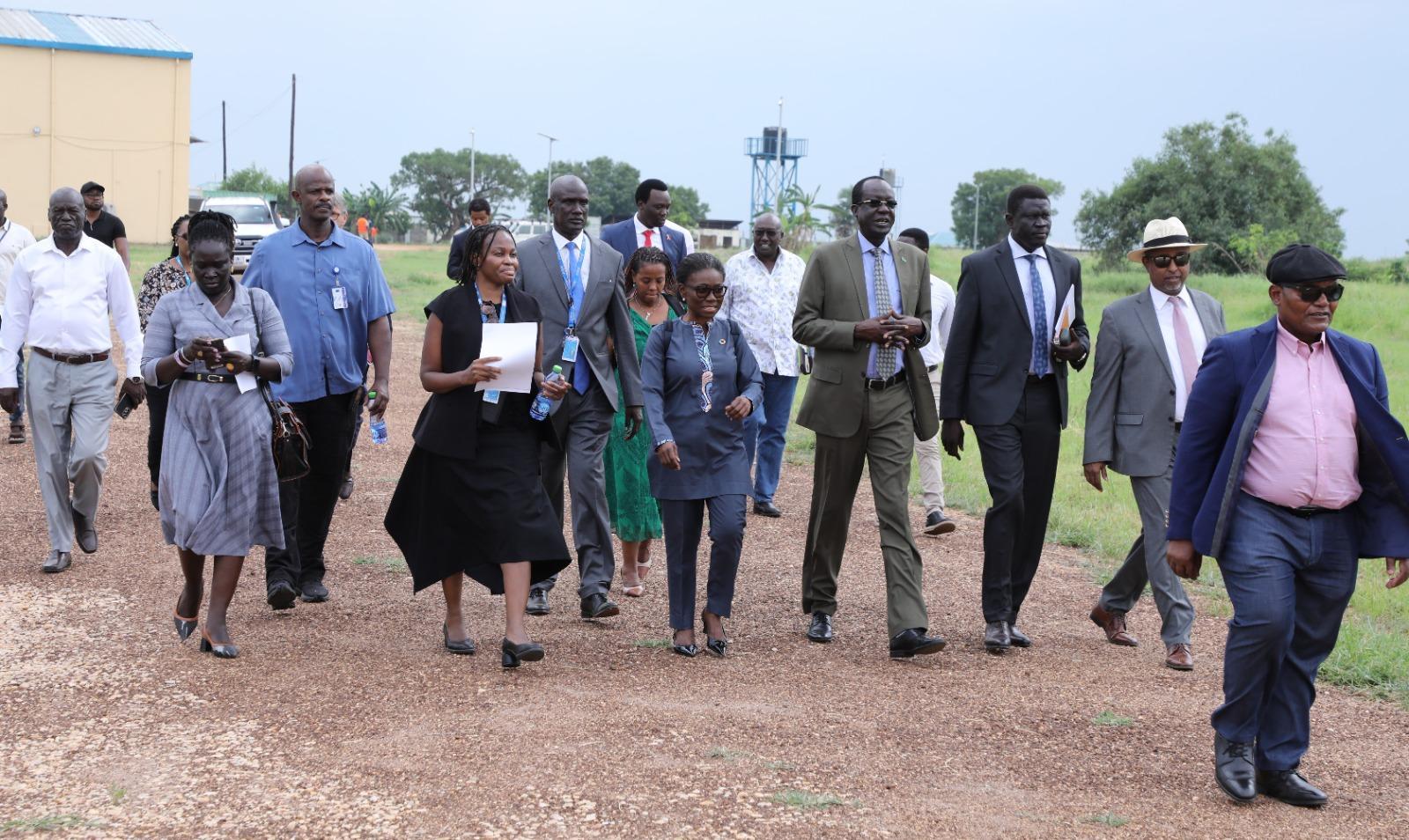Africa-Press – South-Sudan. The Deputy Special Representative of the Secretary-General, Anita Kiki Gbeho, called on development and humanitarian partners to urgently channel more resources towards strengthening the country’s disease response capacity.
Speaking during roundtable engagement in Juba, Gbeho, who doubles as the UN Resident and Humanitarian Coordinator in South Sudan, emphasized the critical need to close existing health gaps by integrating disease surveillance, establishing well-equipped rapid response teams, and enhancing cross-border laboratory networks.
“As we look ahead to the Global Fund’s eighth replenishment for 2027 to 2029, co-hosted by South Africa and the United Kingdom, I urge partners to channel resources to close critical gaps in integrated disease surveillance, rapid response teams, and cross-border laboratory networks,” said Gbeho.
Gbeho said that the current HIV, TB, and malaria grant for 2024 to 2026 stands at $167 million, the largest amount since independence, and it focuses on building resilient, sustainable health systems and pandemic preparedness.
“Lastly, and in conclusion, I encourage all partners to reaffirm their commitment to global health and to the government and the people of South Sudan. We are building a stronger, more resilient health system where no one is left behind,” she said.
For his part, Lole Laila, the Executive Director for the South Sudan Network of Persons Living with HIV, said the support from the Global Fund has saved many lives, particularly in South Sudan, where the health system is still fragile.
“Today, many of us have viral loads that are now reported as non-detectable, which means we are defeating HIV and AIDS through the work of the Global Fund. We need to come together as partners to address these issues,” he said.
Meanwhile, Evelyn Letio, program coordinator for the South Sudan Network for People Living with HIV, stated that 20 years of unwavering support from the Global Fund to South Sudan is a milestone that speaks volumes of solidarity, partnership, and hope.
“For two decades, the Global Fund has been working alongside us in a country marked by fragility, displacement, and limited resources. The Global Fund has been a lifeline. It has brought antiretroviral therapy closer to our homes and supported testing and counseling,” said Letio.
“We will continue to be at the forefront of the HIV and TB response, advocating, educating, and supporting our communities with the same passion that the Global Fund has shown us over the last 20 years,” she added.
Mohamed Abchir, the country representative for the United Nations Development Programme, said the Global Fund has, over the last 21 years, increased action and investment to save lives and combat HIV/AIDS, tuberculosis, and malaria.
“Over the past two decades, a total of 12 grants funded by the Global Fund have been implemented in South Sudan, covering HIV/AIDS, tuberculosis, malaria, and components for resilient and sustainable health systems,” said Abchir.
Abchir revealed that 245 hospitals and health facilities across the country are offering essential HIV and TB services, adding that the warehouse in Gumbo is a storage facility for essential HIV and TB drugs, laboratory reagents, and other supplies for the Ministry of Health.
Abchir also mentioned that the first incinerator currently stationed at the National Public Health Laboratory was procured using UNDP core resources and that 11 more incinerators are being procured to bring the total to 14.
“Moving forward, we should work hard to protect and sustain the gains made, save more lives, overcome bottlenecks to service delivery, and make meaningful changes in the lives of the people we seek to impact,” he said.
James Hoth Mai, the acting minister of health, stated that the government recognizes and appreciates the support of the Global Fund and the United Nations Development Programme, which continue to make a difference in the lives of the people of South Sudan.
“The government is committed to addressing gaps in pandemics. The Global Fund investment is a testament to this commitment. South Sudan’s HIV target is to ensure that 95% of people living with HIV know their status and that 95% of those diagnosed achieve 95% viral load suppression,” said Mai.
For More News And Analysis About South-Sudan Follow Africa-Press






